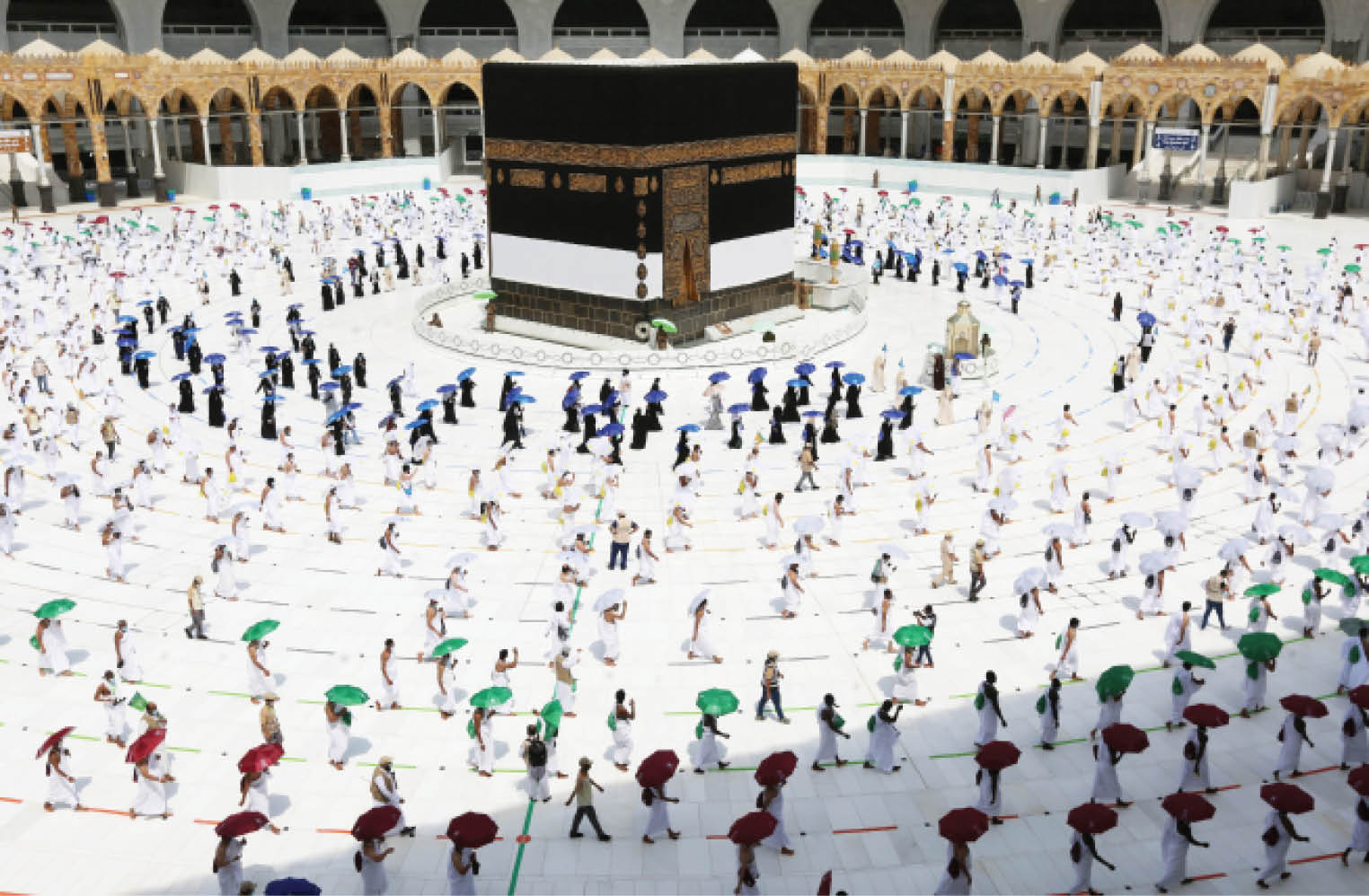Thus, dear Hajji and Hajja, never for a moment entertain the thought that, for example, the effigies of the devil that you pelted while in Mina have all been left behind in Mina, at the Jamarat. No. Never. Keep this in mind that the pelting of those monuments of Shaytan are, in addition to being parts of the rites of hajj, equally metaphors for the sights, scenes and whisperings of Shaytan that you shall begin to encounter as soon as you step out of the Holy lands. The question to ponder therefore would be this- are you going to be prepared to shun and pelt these new and old ‘effigies’ of Shaytan each time you come in contact with them? Are you going to pelt the ‘effigy’ of greed with the pebble of continence whenever you are tempted by same? Are you going to pelt the ‘effigy’ of immorality and debauchery with the ‘pebbles’ of modesty and chastity every moment of your life? Are you going to summon the courage and find the audacity to pelt the ‘effigy’ of wilful disobedience of the injunctions of the Almighty with the ‘pebble’ of obeisance and submission to His will? Are you going to ensure that you do not, for a moment, remove the ‘ihram’ of humility and compassion from your body though you are, in reality, no more under any obligation to put on the ihram since the rites of hajj has now passed?
Yes. Dear hajji and hajjah! Are you prepared to shun situations and circumstances that would corrupt your heart, invalidate your hajj and debase your status and station in the reckoning of the Almighty? Are you going to continue the habit of watching the forbidden with those two of yours- eyes that contemplated the Kaaba for the first time and by which your heart became filled with awe for the powers of the Almighty? Are you going to remain in that dissolute station where you embrace and touch bodies and objects that are unlawful for you with those hands with which you struggled with your fellow pilgrims to touch the Hajar al-Aswad? Are you going to continue to listen to music and sounds that are forbidden for you even in the knowledge that they function in corrupting the hearts and rendering the soul dissolute?
I would argue that one way you could begin to guard and treasure your new status as an Hajja and Hajji is to constantly recall his mercies and blessings over you. The grateful servant is never an indulgent or forgetful subject. She keeps in mind the privileges of life and living, of departure and arrival. To be grateful to Him is to remember the counted and the uncounted and indeed the unaccountable. To be grateful to him for His mercies is to deserve greater mercies and blessings- ‘If you are grateful”, He says, I will surely increase you in favour; but if you deny, indeed, My punishment is severe.” (Qur’an 14: 7). To be grateful for the ability to go to Hajj through pious living after Hajj is to merit the grace of more return to Makkah and Madinah.
One other way to not lose the aura of ‘Arafah is to not be in a hurry while expecting practical manifestations of that special supplications that you put forward to Him while on mount ‘Arafah or during the Tawaf. Again, keep in mind that all supplications and prayers, particularly those that are devoid of iniquities, those that are premised on virtuous acts and conducts, are fated to, one, acceptance here on earth in the manner by which they were presented, two, accepted but replaced with something better or, three, delayed as restitution for sins in the hereafter. Thus, all references to the Hajji and Hajjas would therefore be, among others, to people who are forever waiting, in confidence and certainty, for the promises of Almighty. They are people who would never lose hope even as they may be buffeted by the vicissitudes and challenges of life. They know that if indeed life is a battle, then to have gone on hajj and back is to be a winner. It is to be an exemplar and an ornament of the society. It is to radiate the best conduct in the neighbourhood. It is to become a reference for chastity and modesty.
Let us remember that successful performance of Hajj is usually accompanied by joyous celebrations and felicitations from kith and kin, from friends and family. It is important that hajji and hajja remain humble on such occasions, offer prayers for their loved ones. Our leader and Prophet of Islam said: “Whenever you meet a hajji (on his way home) then greet him, shake hands with him and tell him to ask for forgiveness of your sins from the Almighty on your behalf before he enters his home. His prayer for forgiveness shall be accepted, as he is forgiven by the Almighty of his sins.”

 Join Daily Trust WhatsApp Community For Quick Access To News and Happenings Around You.
Join Daily Trust WhatsApp Community For Quick Access To News and Happenings Around You.


